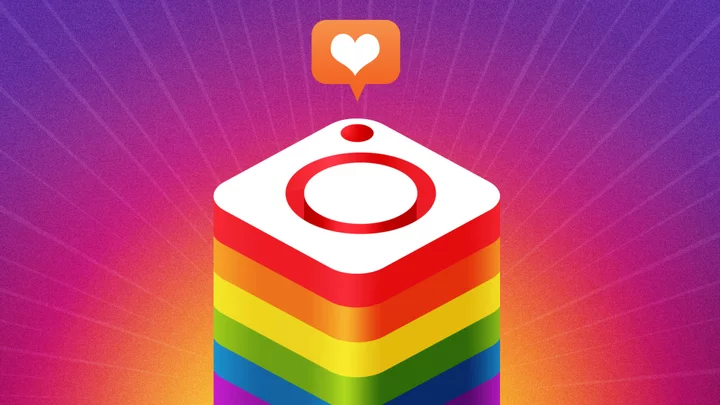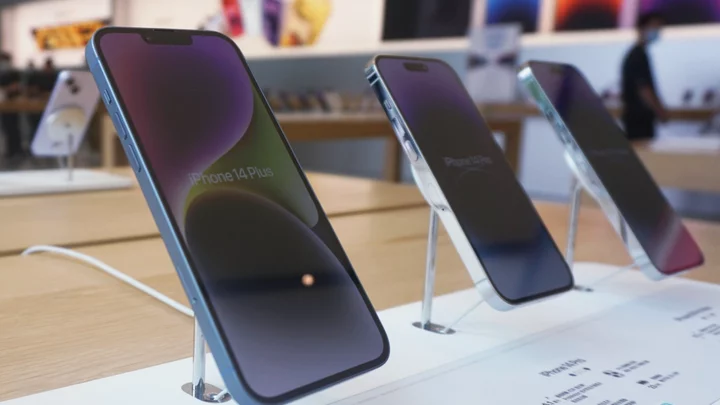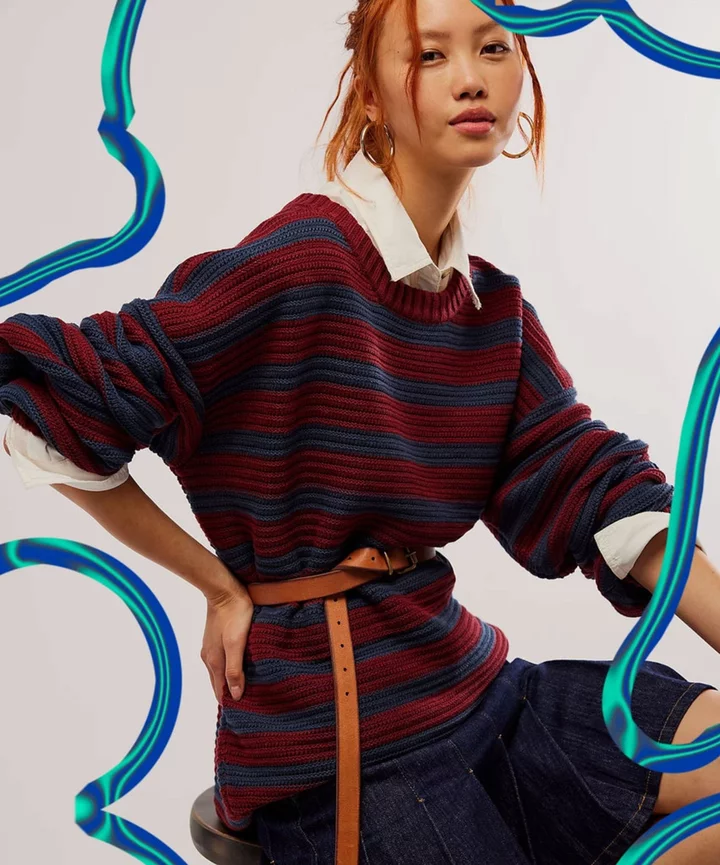On Instagram, artist Michael Kerschner posts collaborative queer portraits on his account, @queeringbeauty. Like many LGBTQ creators on the platform, Kerschner has received a warning that his account can't be viewed by non-followers — aka, he's been shadowbanned.
"How does it feel? Horrible," Kerschner told Mashable. His photo series is about embracing a fabulousness queer people repress to fit in, he said, and this notification — along with Instagram removing some Stories as well — makes him feel like Instagram doesn't approve of this kind of celebration.
"It has actually felt like assault," Kerschner said.
SEE ALSO: Who shouldn't get verified on InstagramMashable has spoken with several LGBTQ and sex educator Instagram accounts and academics who've experienced or witnessed shadowbanning.
What is shadowbanning?
Shadowbanning has a different definition depending on who you ask, but in this context it means content that isn't recommended on the Explore page, Feed, Reels; sometimes, shadowbanned means not being able to be found through Search, either.
While, in recent months, Instagram has taken measures to be more transparent about being "non-recommendable" — Meta's way of saying shadowbanned — creators say that not much has changed. Not only does this impact their reach, but it's made their livelihoods take a hit — all while celebrities and brands can post similar content without consequence. Instagram didn't respond to Mashable's multiple requests for comment.
Timeline of Instagram shadowbanning
For years, creators who post about sex, LGBTQ issues, erotic art, and similar matters have been saying that Instagram removes their content (or accounts) and shadowbans them. With Instagram's terms of service adhering to Facebook's policies about nudity and "sexual solicitation," sex-based content creators and others have claimed that the platform uses these rules to remove and shadowban them, even if their content contains no nudity or solicitation.
"This is something that a variety of creators…including nude and sexual content creators…LGBTQ+ users, sex educators, activists, journalists, and the like have been battling since 2019," said Dr. Carolina Are, innovation fellow at Northumbria University's Center for Digital Citizens, platform governance researcher, and content creator who herself has been shadowbanned.
That year, a Facebook spokesperson apologized to Are via email for shadowbanning pole dancers, following a petition of over 18,000 dancers calling for Instagram to stop blocking their hashtags and content.
Still, the issue persists. In Dec. 2022, Instagram updated Account Status for professional accounts, now letting creators know when they've been shadowbanned. While Meta doesn't use the term, this update allowed users to see if their content was ineligible to be recommended to non-followers on the Explore page, Feed Recommendations, and Reels — effectively, shadowbanned.
Meta took a user-generated term, shadowban, and rebranded it into "non-recommendable," Are said. "This is a cosmetic change," she said.
The update promised to help users understand why they're not recommended, and how to fix this problem (i.e. by deleting posts). Then, in April, Instagram announced another Account Status update: In addition to seeing whether posts can be recommended on Explore, Feed, and Reels, users can see if they're eligible for recommendation on Search and Suggested Accounts as well. Accounts can also edit posts or appeal these decisions for review.
Certain users began to receive a warning: "Your account can't be shown to non-followers."
Instagram's "Your account can't be shown to non-followers" notification. Credit: Carolina AreInstagram head Adam Mosseri promised more transparency around shadowbanning this June. In a blog post, Mosseri reiterated that Account Status changes were built for this purpose.
"Instagram may restrict certain features available to your account if it appears that the account is not following Community Guidelines or our Terms of Use," says a blog titled Helping You Understand What's Going On with Your Account in the June update. "You can now see when some features on your account may be restricted and, if you think we made a mistake, take action to appeal or resolve the issue."
As Mashable reported at the time, Instagram creators weren't satisfied by these updates.
Frustration over double standards
Sexuality expert and adult toy developer Topher Taylor said he's been shadowbanned by Instagram for years due to posting sex education and sex toy content. He received the warning about being shown to non-followers, then contested Instagram's decision. He won the appeal, and since then he's seen an influx of followers and has been able to Boost (paid promote) his posts. "It was just surreal," he said.
Taylor, however, said his account has been previously deleted and reinstated several times in addition to being shadowbanned. He partly attributes this to homophobic comments and reports on his account.
"You will get more reports if you're visibly queer," he said.
"You will get more reports if you're visibly queer."Creators have noticed that content featuring heterosexual people doesn't receive the same scrutiny. "The fact that I see straight content and advertisements that are enormously sexual demonstrates that it is the act of queerness that they are rejecting," Kerschner said.
Nicholas, a queer photographer who wished to be referred to by their first name only, said Instagram doesn't explain what is offensive in photos it removes, "even if you see the same kinds of photos in your feed from other accounts 100 times a day."
Further, celebrities and brands can share suggestive content that will be removed on a smaller creator's account.
SEE ALSO: KinkTok is rife with misinformation. Here's why that's dangerous."Even though Instagram supposedly allows for artistic representations of nudity, many users have observed that large accounts that promote the male gaze (i.e. Playboy, Kardashians) can get away with explicit nudity, while queer, non-white, and feminist creators are more likely to have their accounts hidden from non-followers," said Annie Brown, researcher at the University of California San Diego and founder of Reliabl, a content moderation service for social platforms and online communities.
Brown cited a report from the Brennan Center for Justice about double standards on social media: Platforms (this report focused on Facebook, YouTube, and Twitter) over-enforce rules on marginalized users like people of color, LGBTQ people, and religious minorities, but don't provide them support for harassment they face.
"At the moment, many marginalized users feel like this feature is performative, and does little to help them gain visibility on the platform," Brown continued.
This hinders marginalized creators' visibility, thus hindering their ability to make a living.
"It's directly impacted my income," said Taylor. "This is my bread and butter…it's very frustrating to be limited by [Instagram]," he said, especially seeing celebrities post similar content without the same scrutiny.
"It's just so disheartening, especially when it's my job…it's my employment," he continued.
Sex educator Venus Libido echoed Taylor, saying content violations have affected her business and mental health. "This is my livelihood, and I have been doing this for years now," she told Mashable. "It is really scary to think that it can just all be ripped away from you at any time."
Disconnection between Meta and its users
In addition to being shadowbanned, these accounts often experience Instagram removing posts for violating community guidelines — many of them for nudity or "sexual solicitation." Some people Mashable spoke to have had their accounts deleted numerous times, as well.
This recent move from Instagram was likely made due to user pushback when Meta denied shadowbanning was common, said Brown. Another reason is upcoming moderation transparency regulations in California and Europe, Brown noted.
"This new feature is still a top-down imposition of punishments that have little to do with the platform's community guidelines," Brown told Mashable in a written statement. "Users have no insight into why their posts are impacting their visibility except for broad statements such as violating 'guidelines on nudity and sexual activity.'"
Users can appeal these decisions, but the process is unpredictable. In a recent Instagram post, Are said Meta told her reviews should take a couple of days. But this hasn't been people's experience.
"There was a time that I was so pissed off that I was contacting them every day," said queer artist Charlie G Fennel. "I've never been contacted back." Fennel, who posts photos of their partially nude body, said not even ten percent of their followers see their posts.
Venus Libido said she too has contacted Instagram every day the last few months, and even had a one-on-one call with Meta. The Meta employee, however, couldn't give her any answers. "I came prepared with multiple questions, yet none of them were answered," Venus Libido recalled, "nor was there any opportunity to understand why my account was being harshly criticised when I was following all the steps necessary."
Kerschner said the appeals process feels arbitrary. He's challenged Instagram's rulings before, and won some and lost others. "I don't really do it anymore as it doesn't feel appropriate or safe to ask for further rulings from whatever or whomever makes these decisions," he told Mashable.
Another disconnect between what Meta says and what users experience is what happens when they delete "offensive" posts. According to the "can't be shown to non-followers" notification, users need to delete certain posts in order to be seen by non-followers again. But as Meta told Are, "deleting posts works only depending on the type of posts/edits made and on context…and won’t automatically result in a green tick on your account status."
"It's Groundhog Day of appealing the same content over and over again."Are herself was shadowbanned for weeks before her appeal was reviewed and accepted. Then, as soon as she posted something new, her profile was deemed non-recommendable again — because posts that were previously successfully reviewed were flagged by the algorithm again.
"It's basically useless," Are said. "It's Groundhog Day of appealing the same content over and over again."
Want more sex and dating stories in your inbox? Sign up for Mashable's new weekly After Dark newsletter.
"Once [users] remove offending content, as told by Instagram, they quickly receive another notification letting them know that older content needs to be removed as well," Brown said. "It seems to be a never-ending, no-win situation for creators."
"If this is an attempt at moderation transparency," Brown continued, "it is a poor one."
With their content going unseen and their financials taking a hit, these users expressed frustration over Instagram. The platform, like social media in general, is a necessity for people who make money online, and even if you just want to connect with likeminded people.
"In a time where the mere expression of queer joy is becoming more dangerous, even deadly, it feels like an ominous practice for Instagram to play the role of arbiter of what society is willing to tolerate."Fennel said they're "slowly giving up" on Instagram, but compared how they feel about it to a condition in which people fall in love with their captors. "It influences your self esteem…because you're not able to promote what you're doing," they said. "It's [like] Stockholm syndrome because you feel tied to it too."
Amid attacks against LGBTQ people online and through legislation, Kerschner sees Instagram's actions as alarming.
"In a time where the mere expression of queer joy is becoming more dangerous, even deadly," he said, "it feels like an ominous practice for Instagram to play the role of arbiter of what society is willing to tolerate."









